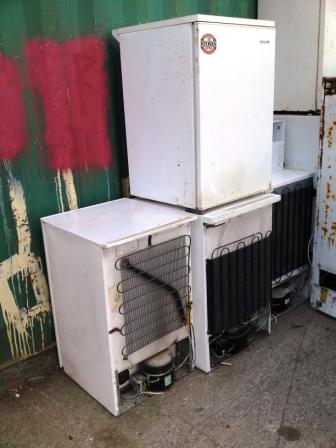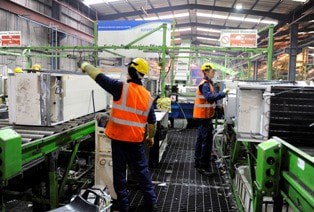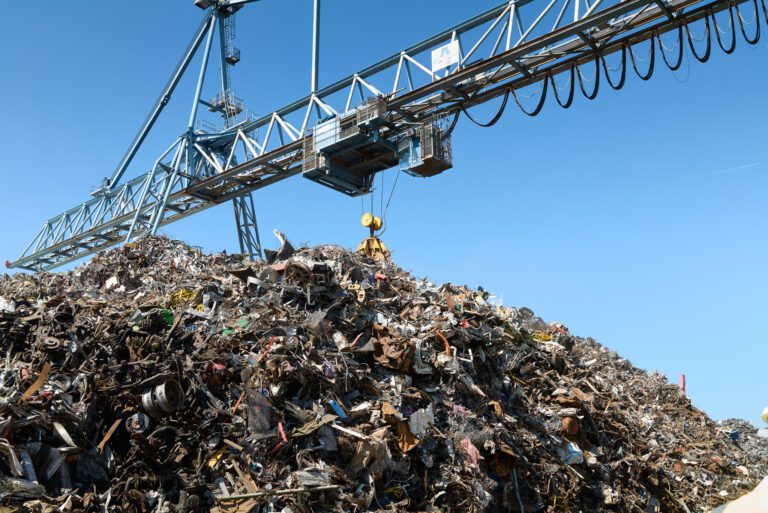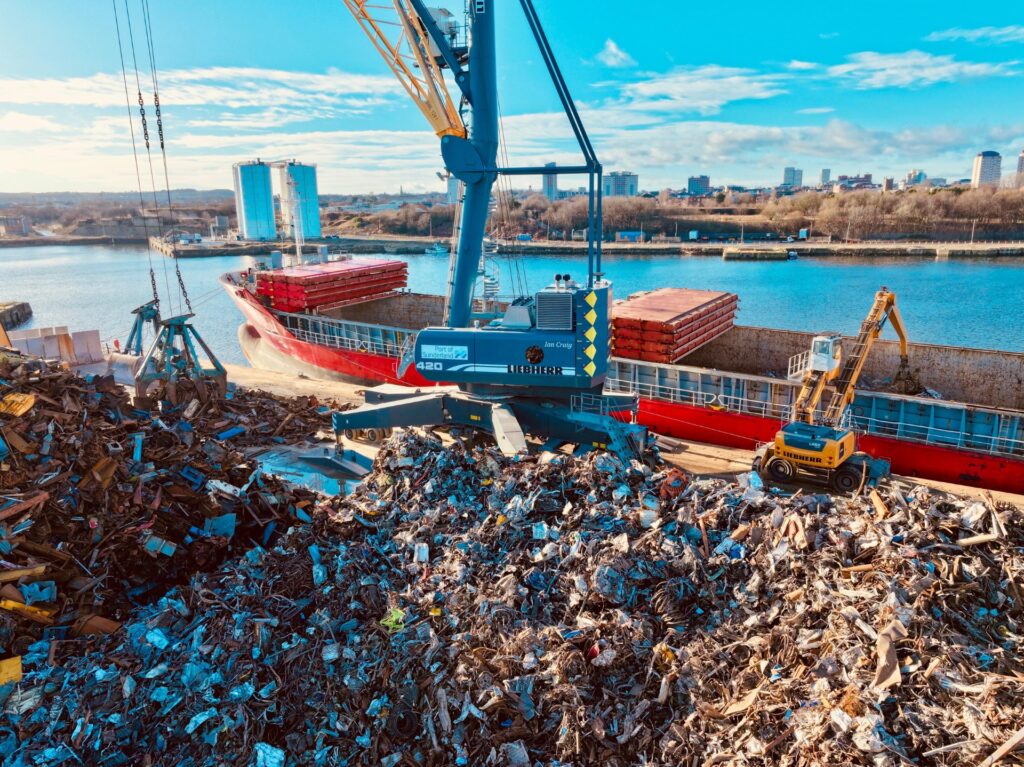Recyclers have claimed that a change in Environment Agency guidance stating that pentane fridges must be treated as hazardous waste, has lead to a shortage of capacity at fridge recycling plants.
This follows warnings by a number of councils over rises in the number of fridges being fly-tipped in the West Midlands and Derbyshire at the end of the summer.

The ruling, published in February, relates to pentane in fridges which is a blowing agent used in the insulating foam as an alternative to CFCs. The Environment Agency has stated that in order to prevent the risk of fire at fridge storage and treatment sites pentane fridges can only be treated at sites permitted to process hazardous waste.
As a result, metal recyclers are no longer able to shred pentane fridges, instead having to send them to dedicated fridge reprocessing facilities to be degassed with some claiming that there is insufficient capacity currently in operation to deal with the tonnage of fridges being produced.
Speaking to letsrecycle.com one fridge plant operator said: Most fridge plants operate in an oxygen starved atmosphere which reduces the risk of fire. Prior to the ruling all pentane fridges which have their oil and gas compressors removed and carcass would be shredded with all the other general light iron. When the ban was implemented, those could then not go through shredders.
We saw some instances where the number of fridges coming back through local authorities went up five or six times, and for the first time in a long time we have had some suppliers that we have had to turn away.
‘Since we issued our guidance there has been a significant increase in the number of fridges being processed through dedicated fridge processing plants, which we see as a positive move.’
Environment Agency spokesperson
I think it is a bit over the top. We are not aware of a single fire caused by pentane fridges at a shredder. I find it odd that it is classed as a hazardous item when it comes to recycling, but it spends 20 years in someones kitchen and it is not a risk.
Poor practice
According to the Agency, the ruling came about in the wake of reports of poor practice at waste facilities, involving the deliberate damage of cooling circuits and removal of compressors before they have been fully degassed. It also claimed that some operators were advising customers to remove compressors prior to disposal, in order to avoid the need for degassing.
An Environment Agency spokeswoman told letsrecycle.com that the increase in the number of fridges processed at degassing plants is a positive move and the Agency also claims that sufficient capacity exists for the treatment of material.
She said: Since we issued our guidance there has been a significant increase in the number of fridges being processed through dedicated fridge processing plants, which we see as a positive move. Our recent enquiries indicate that there are fridge processing plants with sufficient capacity so there is no firm evidence that a lack of capacity is causing fridges to be fly-tipped. We suspect that as with other items that are fly-tipped it is down to rogue operators using illegal practices to avoid costs.

Illegal dumping
Connections have been drawn between the ruling and an increase in the number of fridges being illegally discarded. Bolsover council in Derbyshire reported that the number of fridges being dumped rose from one reported incident in April 2013, to 21 in August, while Wolverhampton council claimed that 70 fridges were fly-tipped in August alone.
Bolsovers cabinet member for the environment, councillor Dennis Kelly, said: We are not sure why this increase has occurred, but it is something we need to stop and stop now. There is no pattern to where and why the items are being dumped, and we are doing everything we can to catch the culprits.
Capacity
But, Sean Feeney, chief executive of WEEE recycler Environcom, which has a dedicated fridge processing site at its plant in Grantham, said there is sufficient capacity to treat fridges at existing sites in the UK.
Related Links
Mr Feeney said: No reputable recycler will fly tip fridges, not only because there is sufficient reputable fridge recycling capacity already available in the UK but also because WEEE legislation is designed to ensure fridges are recycled as part of the producers responsibility.
So if fly tipping of fridges is still occurring its likely to be a reaction from disgruntled recyclers who want to continue with the bad practice of shredding fridges – rather than reusing or recycling them – thus creating the potential of more fires due to the highly flammable insulation material they contain.







Subscribe for free